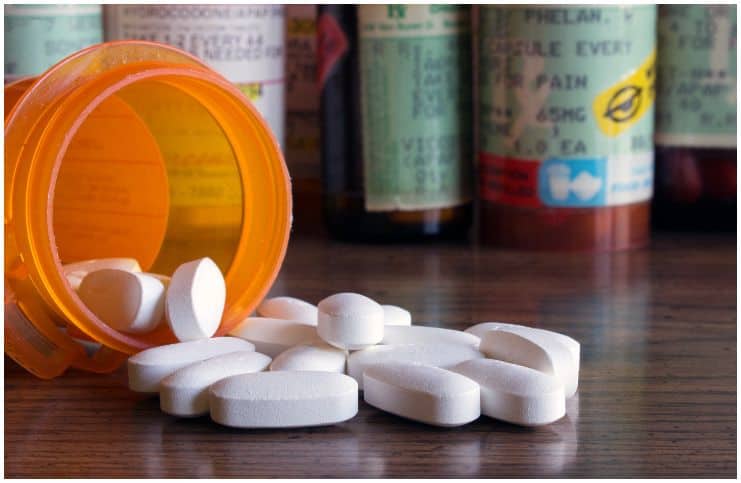This article explains what are the differences between Flonase and Nasacort:
Nasacort
It is a nasal steroid used in treating symptoms of nasal congestion, allergic rhinitis, and other nasal-related problems.
Allergies are your immune system’s specific reaction to normally harmless substances, like – certain foods, pollen, or medicines.
This nasal spray contains the active ingredient triamcinolone acetonide, which is a type of medicine known as a corticosteroid that prevents the release of substances in the human body that cause inflammation.
Dosage
The dosage of this nasal spray is based on the condition. In children, the normal dose is 1 to 2 sprays in each nostril a day or as directed by your healthcare professional.
In adults, the typical dose is 2 sprays in each nostril once or twice every day or as directed by your healthcare professional.
This spray commonly starts to work within 2 to 3 days, however, for some users, it may take up to 14 days to work.
Once the maximum benefit has been achieved, it is recommended to reduce the dose to 1 spray per nostril a day (which is about 110 mcg/day) to minimize the risk of side effects while maintaining effectiveness.
If you are using this medicine for the first time, you will need to prime the nasal spray. To do this, pump the bottle until some of the medicine sprays out, which is usually about five times. After priming, you must first blow the nose to clear the nostrils.
Side Effects And Precautions
Since it is directed to where the inflammation is happening, this nasal spray has a lower chance of causing withdrawal symptoms as well and it has fewer possible side effects than oral steroids do.
Frequent side effects include:
- unpleasant taste;
- vomiting;
- nausea;
- headache;
- watery eyes;
- a stuffy nose;
- a sore throat;
- burning in the nose;
- nosebleeds;
- sneezing after the use of this spray;
- cough;
- nose dryness or irritation.
Since this nasal spray is a steroid, it can considerably slow down the healing process if you had nose surgery or have hurt your nose.
It is not recommended to use it if you have recently undergone any medical procedures involving the administration of steroids or if you are also using any other immunosuppressant or steroid. Do not use it if you are allergic to triamcinolone acetonide.
Do not operate heavy machinery because this steroid can cause dizziness. More importantly, do not use it for a child under two years old without the advice of your healthcare professional.
Drug Interactions
It may negatively interact with other medications, especially:
- steroids, like – dexamethasone (Decadron, Hexadrol) or Prednisone (used to suppress the immune system);
- leflunomide (Arava), azathioprine (Imuran), etanercept (Enbrel);
- mycophenolate mofetil (CellCept);
- efalizumab (Raptiva), basiliximab (Simulect);
- sirolimus (Rapamune);
- cyclosporine (Neoral, Gengraf).
Flonase
It is part of a class of medications called corticosteroids, more exactly glucocorticoids, that are actually hormones. It contains a medication called fluticasone propionate.
This nasal spray works by blocking the release of certain natural substances which may cause allergy symptoms.
The exact mechanism through which this medicine affects allergic rhinitis symptoms is not known. However, due to the fact that it comes as a nasal spray, its effects on the body are typically limited to the nose.
Dosage
It can be used to help control allergic rhinitis symptoms in sufferers aged 13 years or older. It is available in metered doses of 50 mcg per spray.
Use it in the nose as directed by the product package or your healthcare professional, commonly once or twice per day. When you use it for the first time, you must prime this nasal spray. It is recommended to throw this spray away after you use 120 sprays.
Side Effects And Precautions
Common side effects include:
- cough;
- asthma symptoms;
- vomiting;
- nausea;
- nasal irritation or nasal burning;
- nosebleeds;
- a sore throat;
- headache.
To lower the chance of bleeding in the nose, the nozzle of this nasal spray has to be directed correctly. This is done by aiming the spray away from the wall, which separates the nostrils.
Before using it, tell your healthcare professional if you have liver disease, cataracts or glaucoma, herpes simplex virus of your eyes, diabetes, ulcers inside your nose, tuberculosis, or if you have recently had surgery or injury on your nose.
Alcohol
It is recommended that only a moderate intake of alcohol while using this medication.
Nasacort vs Flonase – Which Is Better?
Both these nasal sprays can cause problems for individuals with certain medical conditions, but, in general, they are safe, equally effective, and well-tolerated by the body for reducing allergic rhinitis symptoms.
6 Effective Home Remedies for Allergic Rhinitis
#1 Stinging Nettle
This plant has long been used medicinally because of its potent antihistamine and anti-inflammatory properties.
#2 Saline Water
One simple method to reduce allergic rhinitis symptoms is to remove mucus from the nose with the help of a saline nasal wash. To use the saline solution, you just need to get a nasal bulb that is used to pass saline water in the nostril.
#3 Steam
It can clear the passage for smooth breathing and relieve nasal passage from mucous. Moreover, steam helps you get rid of irritants causing discomfort and stimulates the nose nerves.
#4 Turmeric
This spice is a good way to reduce the risk of any type of allergy due to its strong antioxidant, anti-inflammatory, and immune-boosting properties.
#5 Oil Pulling
Done daily, it can relieve numerous issues, including allergic rhinitis symptoms. Essential coconut oil is the most frequently used oil for oil pulling.
#6 Foods Rich In Vitamin C
Vitamin C not only reduces allergic rhinitis symptoms due to its potent antihistamine properties, but it also helps the immune system cleanse the body of toxins.




